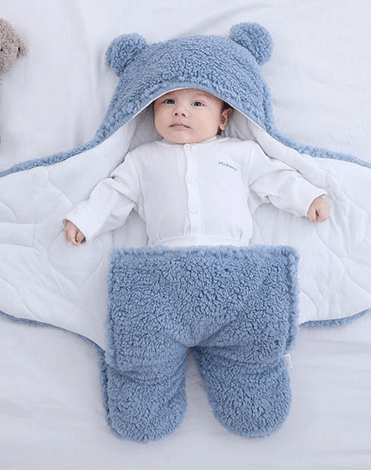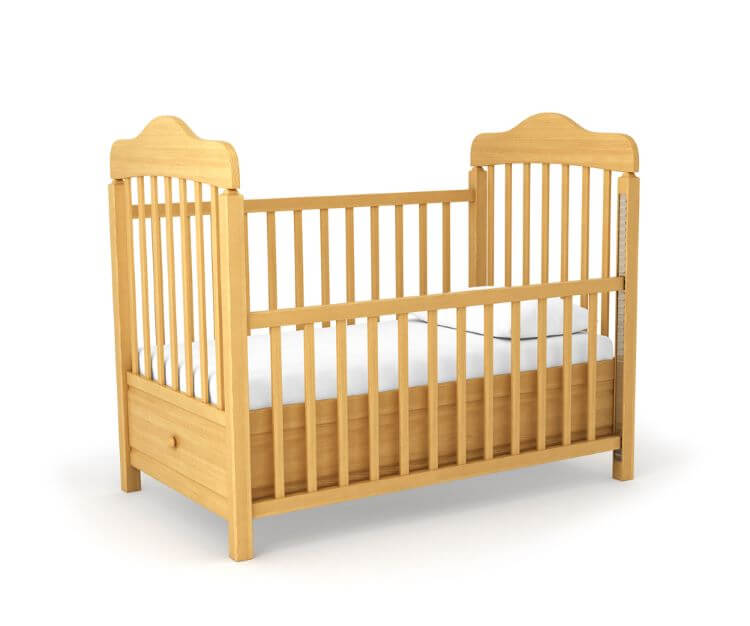1 Thing Humidifier For Baby Can Ease Your Winter

Winter can be a tough time, especially for babies in fact this season is meant to be a stuffy nose and congestion. But don’t worry we understand your worrisome being new parents that their child might catch a cold.
When the weather outside is frightful. The cold air outside and the dry air inside can make it difficult for them to breathe. But one thing humidifier for baby eases your winter.
A humidifier can be a baby’s best friend by adding moisture to the air and relieving congestion and dryness. It can also help to prevent nosebleeds.
The added moisture in the air helps to liquefy the congestion and makes breathing easier for your little one. resulting in when the baby is happy, everyone in the house is happy. In this blog post, we are going to explore the whole nitty-gritty related to the humidifier for baby to ease their winter.
Humidifier for baby cough
If your baby has a cough, you may be wondering if a humidifier will help. Here’s what you need to know about using a humidifier for your baby’s cough.
A humidifier helps to relieve your baby’s cough. The moist air loosens congestion and makes breathing comfortable. Just be sure to use a cool mist humidifier, as hot water vapor can aggravate your baby’s throat and make their cough worse.
To get the most benefit from a humidifier, place it in your baby’s room near their crib or bassinet. Run it for about 30 minutes before bedtime to help your little one sleep more comfortably through the night.

Humidifier for newborn congestion
If your newborn is suffering from congestion, a humidifier may help to ease their symptoms. By adding moisture to the air, a humidifier can help to thin out mucous and make it easier for your baby to breathe.
There are a few things to keep in mind when using a humidifier for your baby. First, be sure to clean the humidifier regularly to prevent the growth of mold or bacteria. Second, use distilled or filtered water to fill the humidifier to avoid adding impurities to the air.
Finally, monitor the humidity level in the room to make sure it doesn’t get too high, which can be uncomfortable for your baby and lead to further respiratory problems.
A humidifier can be a handy way to help out your newborn’s congestion. By following these simple tips, you can ensure that it is used safely and effectively.
How to use a humidifier for baby
Babies are susceptible to colds and congestion, which is why many parents opt to use a humidifier in their child’s room. If you’re not sure how to use a humidifier for your baby, here is a step-by-step guide.
First, choose the right humidifier for your needs. There are many different types of humidifiers on the market, so do your research to find the one that will work best for your family.
Once you have your humidifier, fill it with clean water according to the manufacturer’s instructions. You don’t use tap water, as it can contain impurities that can be harmful to your baby. Instead, use clean distilled water.
Now it’s time to turn on the humidifier and adjust it to the desired level of humidity.
Humidifier for baby benefits
When we ask are humidifiers good for babies? or about the benefits of humidifiers yes they are good and highly beneficial to ease the winter of your infants.
When it comes to taking care of a baby, there are many things that parents need to be aware of. One important factor is making sure that the air in their home is at a comfortable level for their little one. This is where a humidifier can be beneficial.
One is that it can help to loosen congestion and make breathing easier. It can also help to prevent dry skin and chapped lips. In addition, it can create a more comfortable environment for babies who are teething.
If you are considering using a humidifier for your baby, it is important to choose one that is specifically designed for babies. You will also want to make sure that you follow the manufacturer’s instructions carefully in order to ensure proper use and safety.
What to put in a humidifier for baby congestion
When your baby is congested, it is your one and only desire to provide relief that is attained by using a humidifier in their room. But what should you put in the humidifier to help ease baby congestion?
One option is to use distilled water for sure. Distilled water is healthier and clean plus saves from the dirty polluted mist. This will help to prevent any mineral buildup in the humidifier that could make congestion worse.
You could also add a few drops of eucalyptus oil to the water. This can help open up airways and provide some soothing relief. Just be sure not to add too much, as too much eucalyptus oil can be overwhelming for little ones.
Finally, consider using a saline solution in the humidifier. This can help break up mucus and make it easier for your baby to breathe. But be vigilant to use saline because it can lead to accumulating minerals in the machine.
Types of Humidifier
There are many types of humidifiers on the market, and it can be difficult to decide which one is right for your home. Here are a few of the most popular types of humidifiers to help you make a decision.
Ultrasonic humidifiers create a fine mist that is dispersed into the air. These units are very quiet and can be used in any room of your home.
Evaporative humidifiers use a wick to absorb water from a reservoir and then the fan blows across the wick, causing the water to evaporate into the air. These units are less expensive than ultrasonic humidifiers but can be louder.
Impeller humidifiers work by using a spinning disc to fling water droplets into the air. These units are often very quiet but can be more expensive than other types of humidifiers.
Humidifier types as per mist
There are two types of humidifiers per mist.
- Cold Mist
- Warm Mist
Cool mist humidifier
A cool mist humidifier is a great way to improve the quality of your indoor air. It can help reduce static electricity, eliminate odors, and make your home feel more comfortable.
There are many benefits to using a cool mist humidifier. They can help greater to relieve dry skin, nasal congestion, and coughing, and also can reduce the spread of germs in your home and help you breathe easier.
Cool mist humidifiers are often quieter than warm mist humidifiers and use less energy. They also don’t require filters, so they’re easy to maintain. If you’re looking for an effective way to improve the quality of your indoor air, a cool mist humidifier is a great option.
Warm Mist Humidifier
A warm mist humidifier is a great way to improve the air quality in your home. This type of humidifier emits a warm, fine mist into the air. Warm mist humidifiers are also effective at helping to relieve congestion and sinus pressure.
Cool mist Vs Warm mist
Cool mist humidifiers and warm mist humidifiers both have their benefits, so it really comes down to personal preference as to which one you choose.
Cool mist humidifiers are great because they help to reduce the risk of mold and bacteria growth since they don’t require water to be heated. They’re also less expensive than warm mist humidifiers.
Warm mist humidifiers are ideal for people who suffer from allergies or respiratory problems since the warm moisture can help to loosen congestion.
Cool mist humidifiers are safer than warm mist humidifiers, as the hot boiling water or steam can be a potential hazard if it is placed close to the child.
The microorganisms disperse quickly from the cold mist vapor rather than stay longer in the warm mist.
Hot or cold mist humidifier for baby cough and congestion
When we talk about the cold mist versus warm mist humidifier both are equally effective but the majority consensus is cold mist humidifier for babies is better for cough and congestion.
However, more research is needed to get the preferable answer. Further, whether you go for the hot mist it gets normal room temperature until reaches the baby’s airway.
Things to consider before buying a humidifier
When you are considering purchasing a humidifier, there are many things you need to take into account in order to make sure you get the best one for your needs.
The size of the unit, the features it offers, and how easy it is to use are all important factors.
The size of the unit is important because you need to make sure it will be able to cover the area you want it to. If you have a large room, you will need a bigger unit than if you have a smaller room.
The features offered by the humidifier are also important. Some units have filters that need to be changed regularly, while others do not. You also need to decide whether you want a unit that has a built-in humidistat or not.
Ease of use is another important consideration when choosing a humidifier.
Look for a model with an automatic shut-off feature so that it doesn’t run dry. Finally, make sure to clean your humidifier regularly to prevent the growth of mold and mildew.
Pros of Humidifier
A humidifier is a great way to improve the air quality in your home and make it more comfortable for you and your family. Here are some of the benefits of using a humidifier:
1. Relief from Dry Air: Dry air can cause a number of problems like dry skin and respiratory issues. A humidifier can help to minimize these problems by adding moisture to the air.
2. Protection for Wood Furniture: Dry air can cause wood furniture to crack and splinter. By using a humidifier, you can help protect your furniture from damage.
3. Increased Comfort: Humidified air feels more pleasant than dry air, Additionally, humidified air can help to reduce snoring.
Cons of Humidifier
Humidifiers can be a great way to improve the air quality in your home and relieve some of the symptoms of dry air.
However, there are some potential drawbacks to using a humidifier that you should be aware of before you make the decision to purchase one.
One of the main potential problems with using a humidifier is that it can lead to an increase in mold and mildew growth in your home.
If you already have a problem with mold or mildew, using a humidifier will only make it worse. In addition, if you don’t keep your humidifier clean, it can become a breeding ground for bacteria and other microbes.
Another potential downside to using a humidifier is that it can make your home feel stuffy and damp. If you live in an area with high humidity levels, using a humidifier can actually make your indoor air quality worse.
Final Thoughts:
In conclusion, a humidifier for baby can be a great way to ease your winter. Humidifiers help to keep the air around your baby moist, leading to soothe and protect their skin.
Additionally, help to reduce the risk of respiratory congestion. Selecting a warm or cold humidifier is up to your choice. But when using a humidifier, be sure to clean it regularly to prevent the growth of mold and bacteria.
Happy warm winter 😊
FAQ:
Can I use a humidifier as an alternative to the nebulizer?
Well, both devices act the same like turning liquid into a mist or vapor that adequately supports to get relief from congestion.
But the fact of the matter is you can’t use a humidifier as a respiratory treatment option like a nebulizer. A contaminated humidifier can worsen the symptoms because of allergens contained mist.






